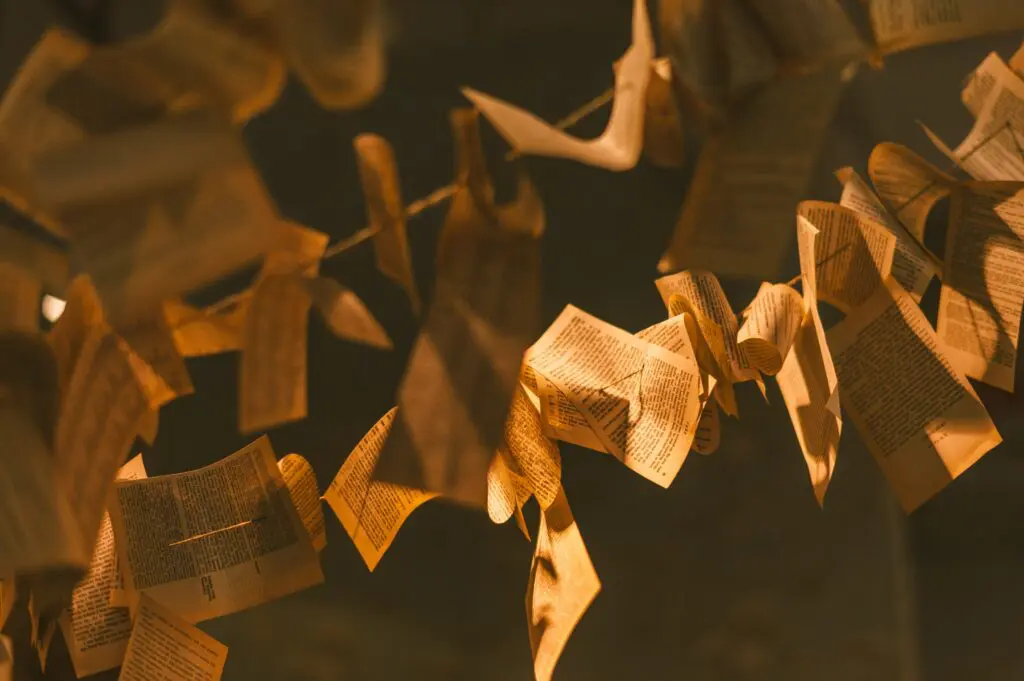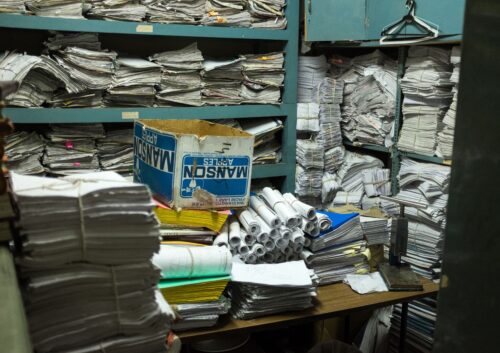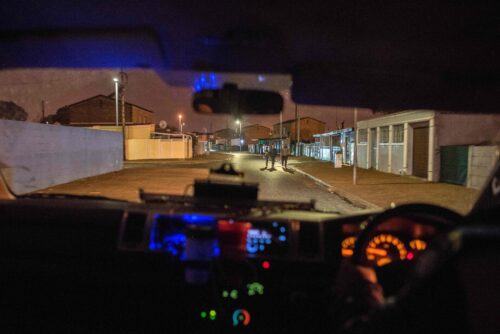Archived Haints

when the writing is done
reference room locked
index cards slotted
library doors bolted
when the wide tables are
wiped down, wet cloth over
staccato-studded scratches
when the stairs to the
printing room are drowned
in evening’s diluted pink light
the security guard walks to his rickety
wooden chair, leans on weathered
faux leather baton, pulls a threadbare blanket
over his shoulders, and folds into slumber.
they come out
from the shadows
and all at once.
pushing up from the tiled floor
emerging from the shelves and
dusty corners, their awakening rattles
empty study rooms and storage cabinets
bygone aunts, uncles, mothers,
fathers, sisters, brothers, cousins whose skin
has turned to thin yellowed paper.
their hollowed faces discernible
only by the ruthless curves and
lines of numbers and catalogues,
colonial categorizations that prefer
Order and Systems, filing cabinets
over memory—the small intricacies of being.
held hostage in the unknown,
they roam aimlessly
stuck in the prison of the archive,
the only thing they can do is
wander through it, mourn
the violent victory of data and records
read through newspaper
clippings that do not speak
of how they sat under trees
or held hands with their
beloved but instead
record only
trampled flowers, the domination
of concrete, the shame in death.
in unison, their echoed voices sing
to one another, a warbled harmony of
their desires, their wishes, their yearnings—
quiet chants that rustle mountainous piles of paper,
a collective reverberation that hums,
“in this version
we survive
in this version
we are alive
in this version
ligament is
not torn from bone
in this version
we are whole.”
in these imaginations, they drift
try to find peace, dreaming of the day
when they may observe the alchemy
that turns desolate corridors
in midnight archives
into hallowed spaces of
remembering
clean graves, unblemished
headstones, engraved names
known birth and end dates,
no blood, no spoil.
a return to form, to remembrance,
to waiting open arms.

























